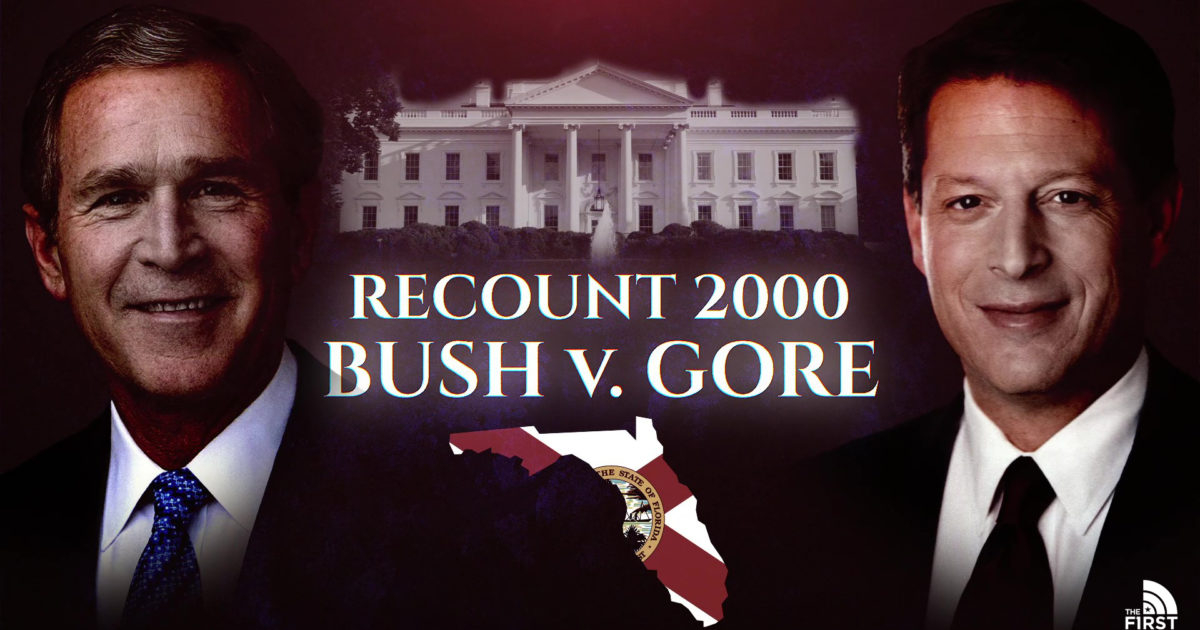Bush v. Gore is resolved by the Supreme Court
Bush v. Gore, 531 U.S. 98 (2000), was a decision of the United States Supreme Court on December 12, 2000, that settled a recount dispute in Florida's 2000 presidential election between George W. Bush and Al Gore.
On December 8, the Florida Supreme Court had ordered a statewide recount of all undervotes, over 61,000 ballots that the vote tabulation machines had missed. The Bush campaign immediately asked the U.S. Supreme Court to stay the decision and halt the recount. Justice Antonin Scalia, convinced that all the manual recounts being performed in Florida's counties were illegitimate, urged his colleagues to grant the stay immediately.[1] On December 9, the five conservative justices on the Court granted the stay for Bush, with Scalia citing "irreparable harm" that could befall Bush, as the recounts would cast "a needless and unjustified cloud" over Bush's legitimacy. In dissent, Justice John Paul Stevens wrote that "counting every legally cast vote cannot constitute irreparable harm."[1] Oral arguments were scheduled for December 11.
In a per curiam decision, the Court first ruled 7–2 (Justices Stevens and Ruth Bader Ginsburg dissenting), strictly on equal protection grounds, that the recount be stopped. Specifically, the use of different standards of counting in different counties violated the Equal Protection Clause of the U.S. Constitution. (The case had also been argued on the basis of Article II jurisdictional grounds, which found favor with only Justices Scalia, Clarence Thomas, and William Rehnquist.) Second, the Court ruled 5–4 against the remedy, proposed by Justices Stephen Breyer and David Souter, of sending the case back to Florida to complete the recount using a uniform statewide standard before the scheduled December 18 meeting of Florida's electors in Tallahassee.[1] The majority held that no alternative method could be established within the discretionary December 12 "safe harbor" deadline set by Title 3 of the United States Code (3 U.S.C.), § 5, which the Florida Supreme Court had stated that the Florida Legislature intended to meet.[2] That deadline arrived two hours after the release of the Court's decision. The Court, stating that not meeting the "safe harbor" deadline would therefore violate the Florida Election Code, rejected an extension of the deadline.

No comments:
Post a Comment